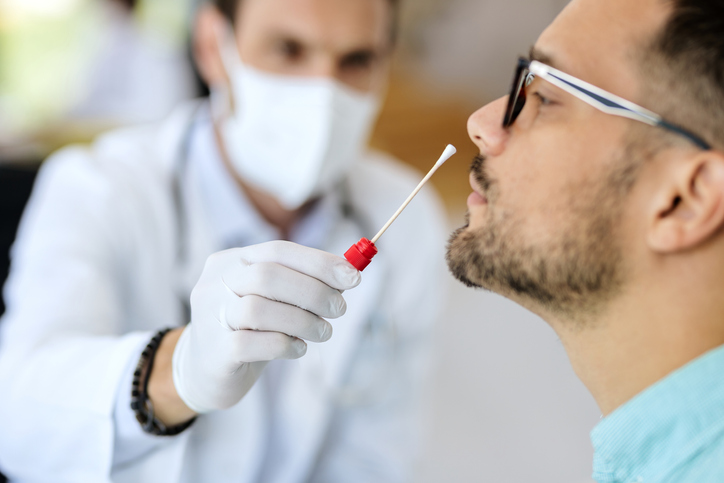Long COVID refers to a range of persistent symptoms that can linger for weeks, months or years after...
Read MoreEffective Monday, January 5th, Inspira Health is now at Yellow Alert Status: Masks for staff, patients and visitors in all high-risk areas across our facilities are strongly recommended.


COVID-19 exposure has become more common with the rise of the Omicron variant, which means more people are turning to tests to see if they have COVID. But with rapid antigen tests and PCR tests, it may seem unclear which test you should turn to and when. Here’s what to know.
There are two types of tests used to determine if you have COVID—polymerase chain reaction (PCR) tests and rapid antigen tests. PCR tests can be done at some pharmacies, testing centers, hospitals and doctor’s offices. Rapid antigen tests are available at some testing sites; most at-home tests are also rapid antigen tests.
If you have been exposed to COVID or you are experiencing symptoms, you should aim to get a PCR test three to five days following exposure or the onset of symptoms to determine if you have COVID. PCR test results can take several days because the test is sent to a lab.
Importantly, if you are up-to-date on your COVID vaccinations (you’ve received all recommended doses of a primary vaccine series plus a booster shot, if eligible), you do not have to quarantine after exposure unless you develop symptoms—but you should continue wearing a mask around others. If you are not up-to-date on your COVID vaccines, you should quarantine until you can get tested.
“A PCR test is highly sensitive and more accurate than a rapid antigen test,” said Evelyn Balogun, M.D. medical director of Inspira Urgent Care, Employee Health and Occupational Health. “We recommend getting a PCR test so that you can know your infection status, alert close contacts if you are positive and then isolate according to the CDC guidelines.”
If you test positive for COVID, you should also alert your primary care physician, who can discuss treatment options and what to do if your symptoms worsen.
Despite PCR tests being the best option if you have symptoms or have been exposed, they may not always be the best test to use. For example, many employers and organizations require a negative COVID test to return to work, travel or attend events. Because a PCR test is highly sensitive, you may test positive for weeks after infection.
“A PCR test can pick up traces of a COVID infection days or weeks after you are no longer infectious,” said Dr. Balogun.
Though PCR tests are more accurate, there is still a place for using rapid antigen tests.
“Rapid antigen tests can detect COVID if you have a higher amount of virus particles in your system and are more contagious,” said Dr. Balogun. “One scenario for using a rapid test is to determine if you are still contagious several days after testing positive.”
Rapid tests can also be useful if you are testing frequently to go to work or school, or if you plan to be in a large crowd or around someone who is high-risk.
To protect others, if you are not feeling well, you should stay home. When you are around large crowds or indoors without good air circulation, it’s recommended to wear a mask.
Inspira Health is a high reliability organization (HRO), which means safety is the top priority for patients and staff. To make an appointment, call 1-800-INSPIRA.

Long COVID refers to a range of persistent symptoms that can linger for weeks, months or years after...
Read More
A Very COVID Christmas: How to Celebrate Safely
Read More
After more than two years of masks, social distancing and travel restrictions, this winter is likely...
Read More